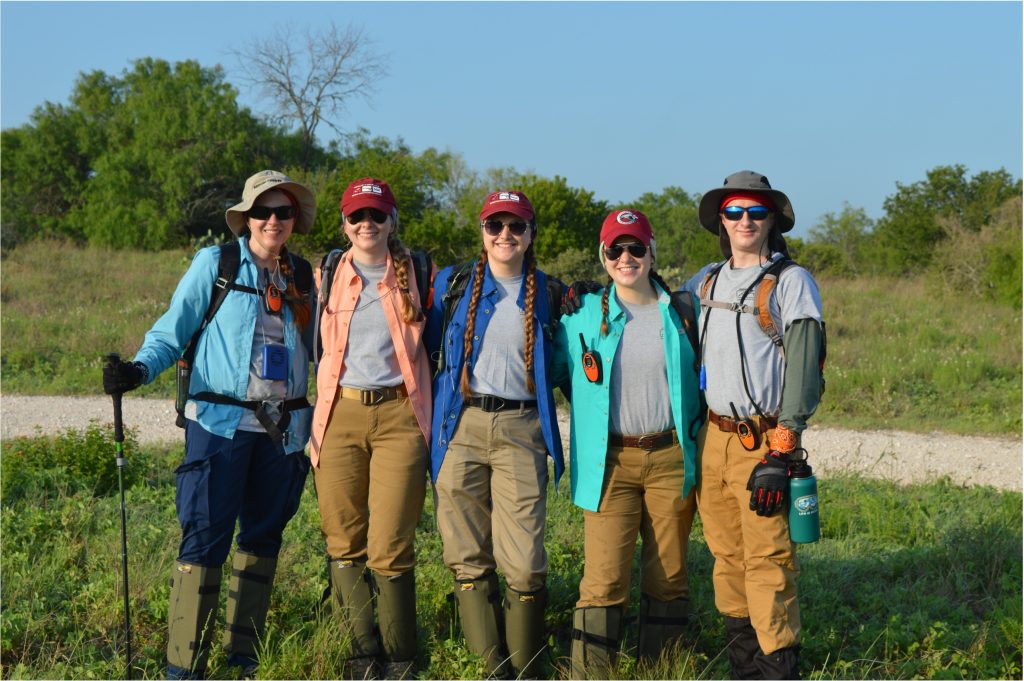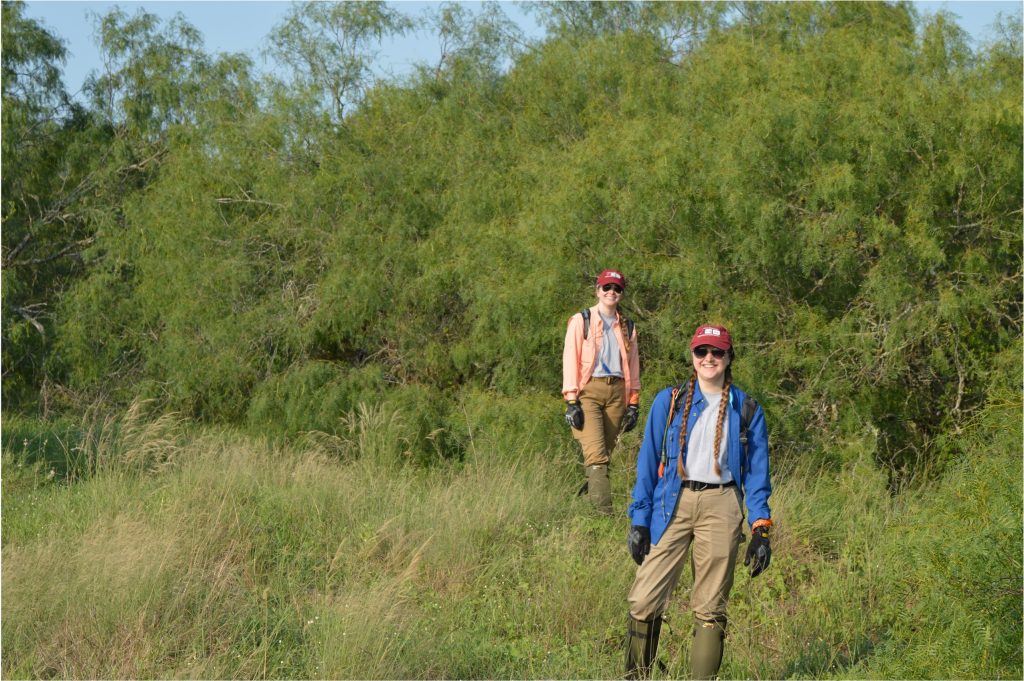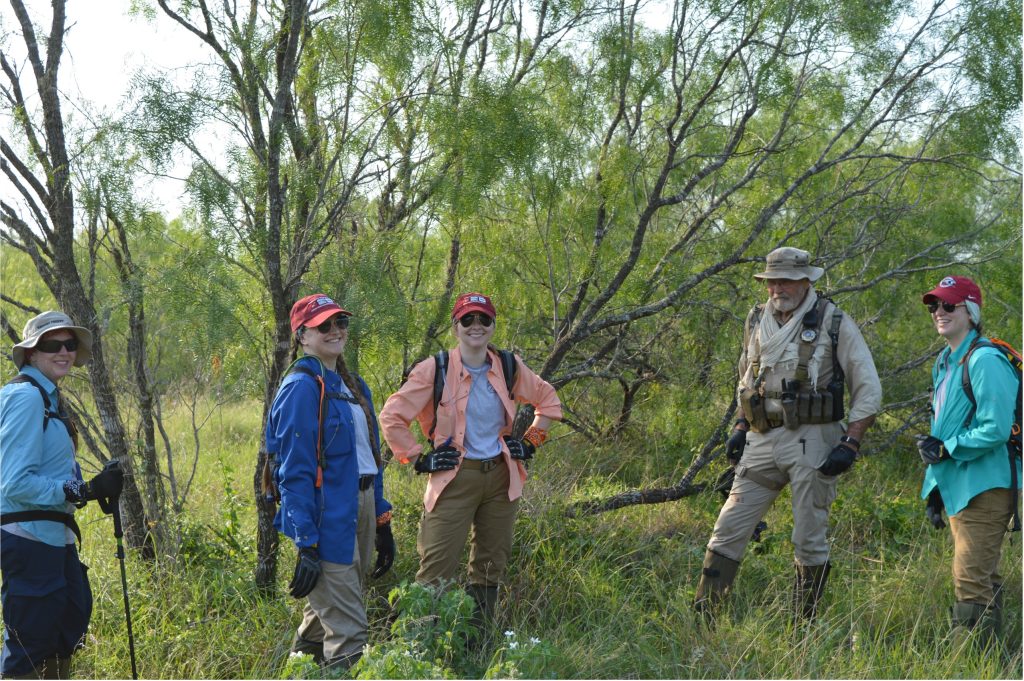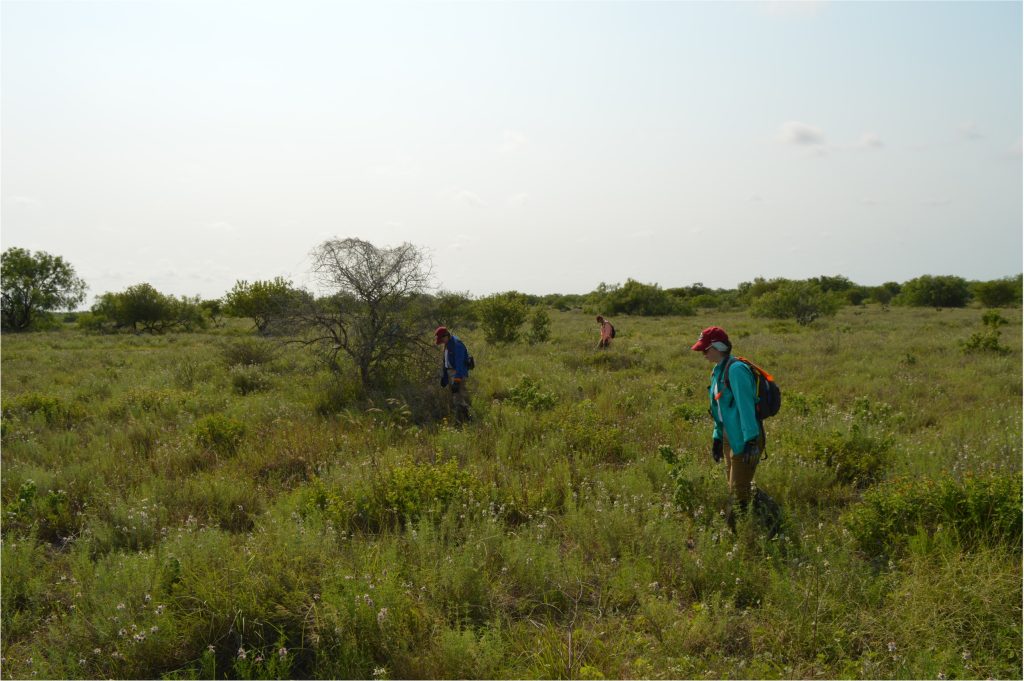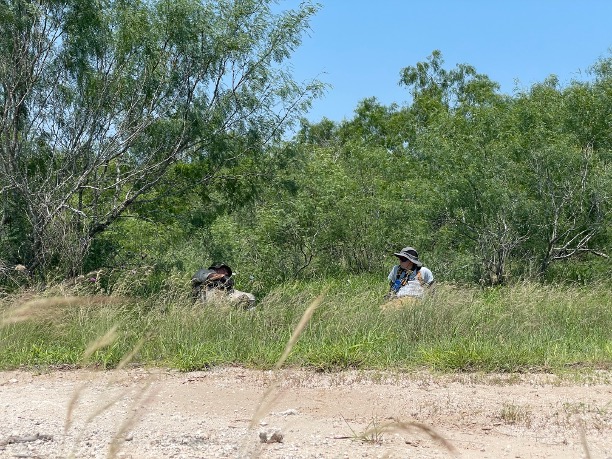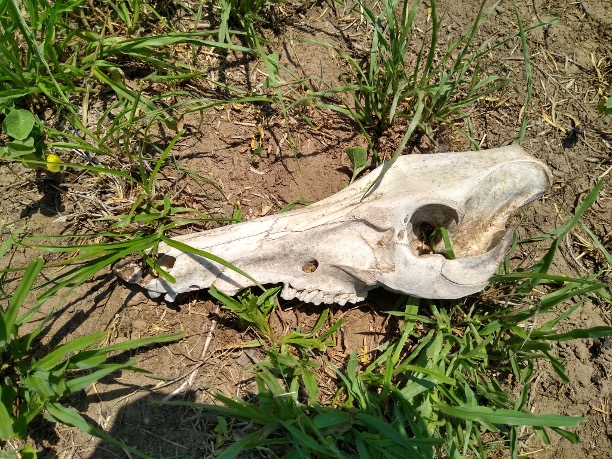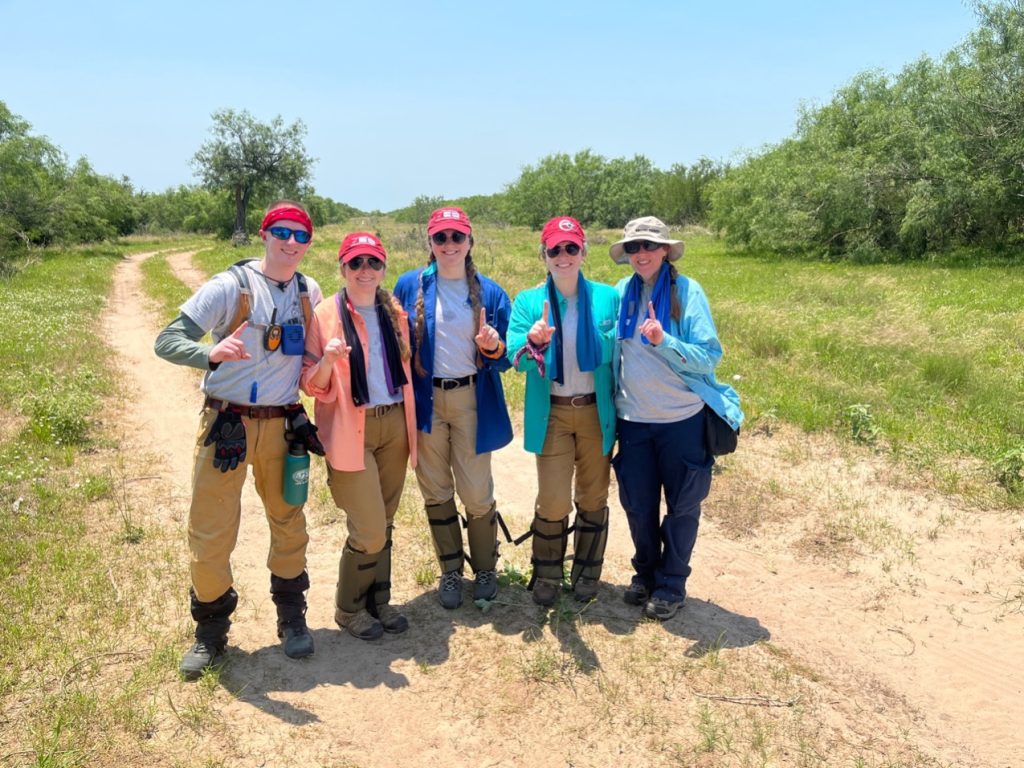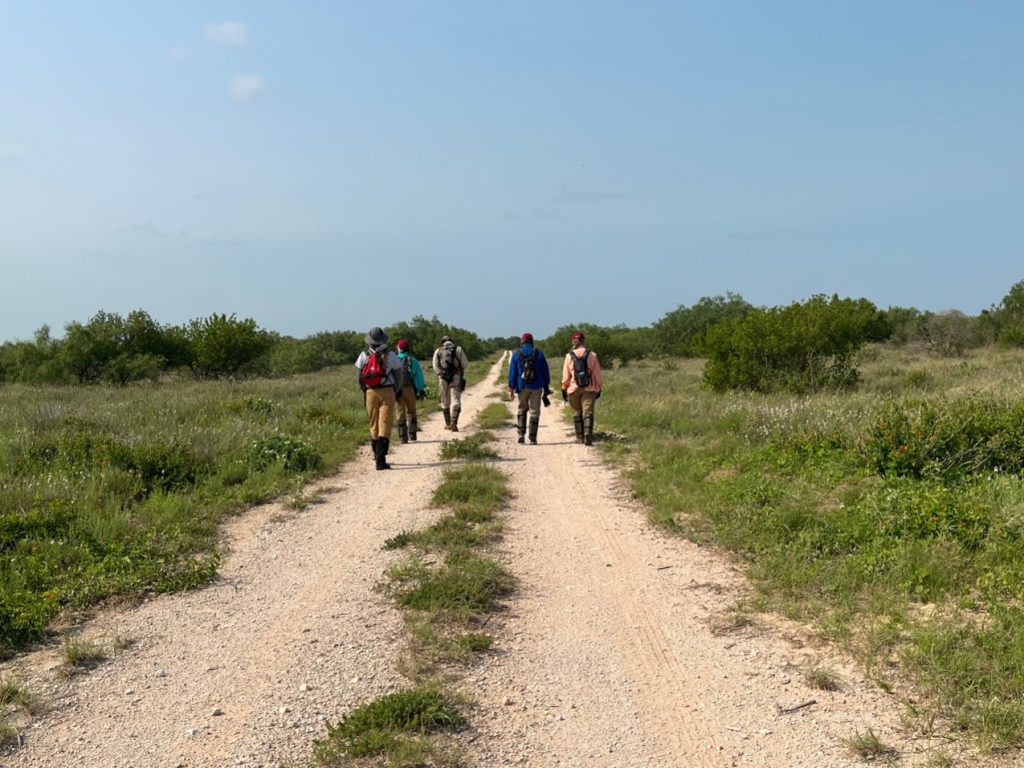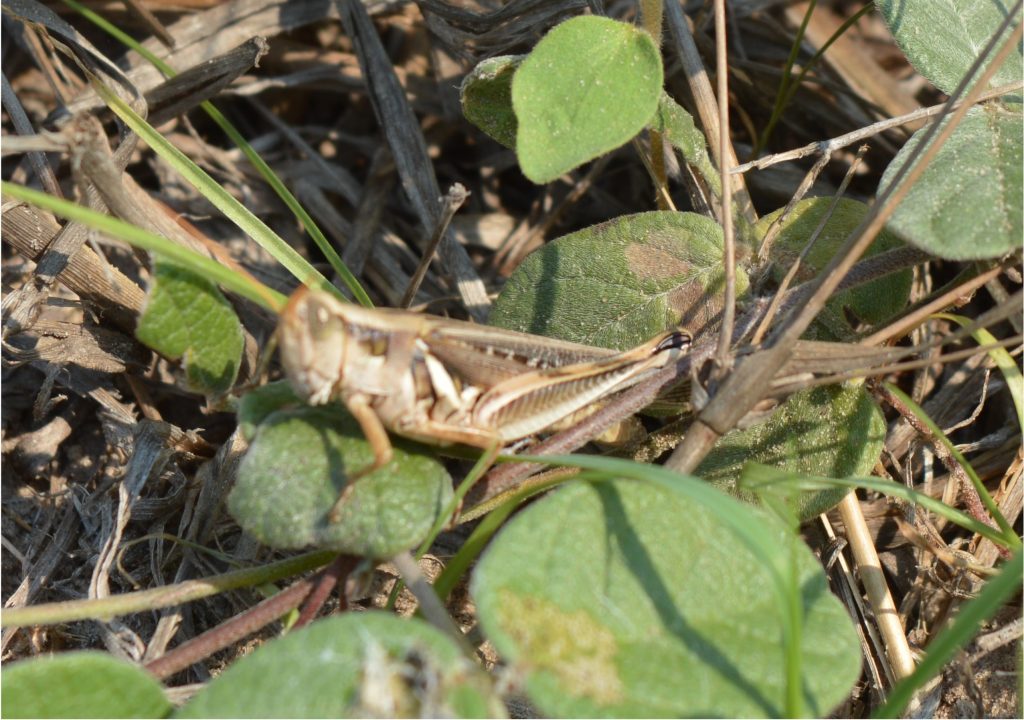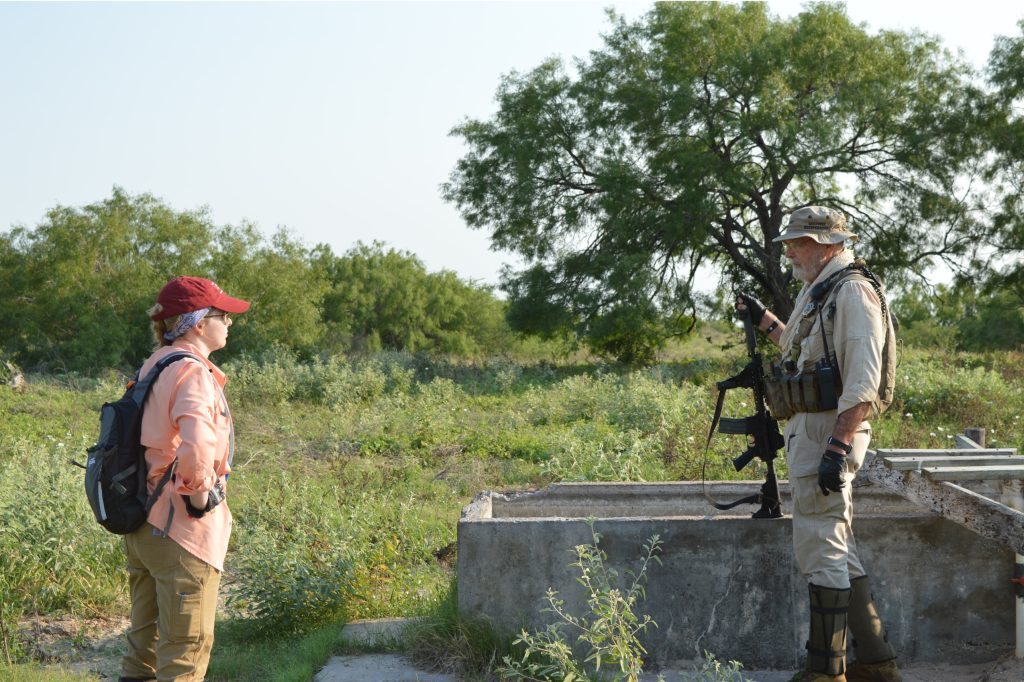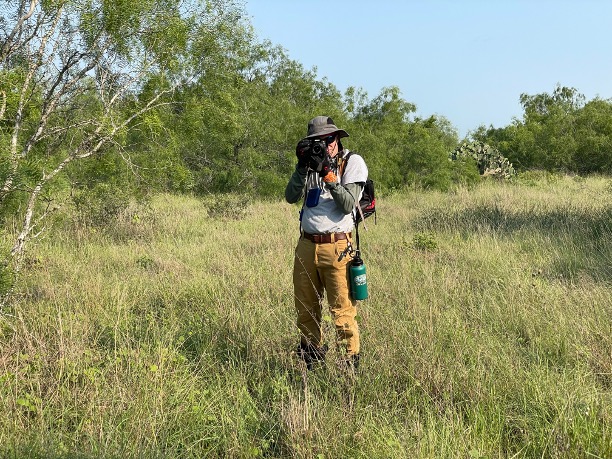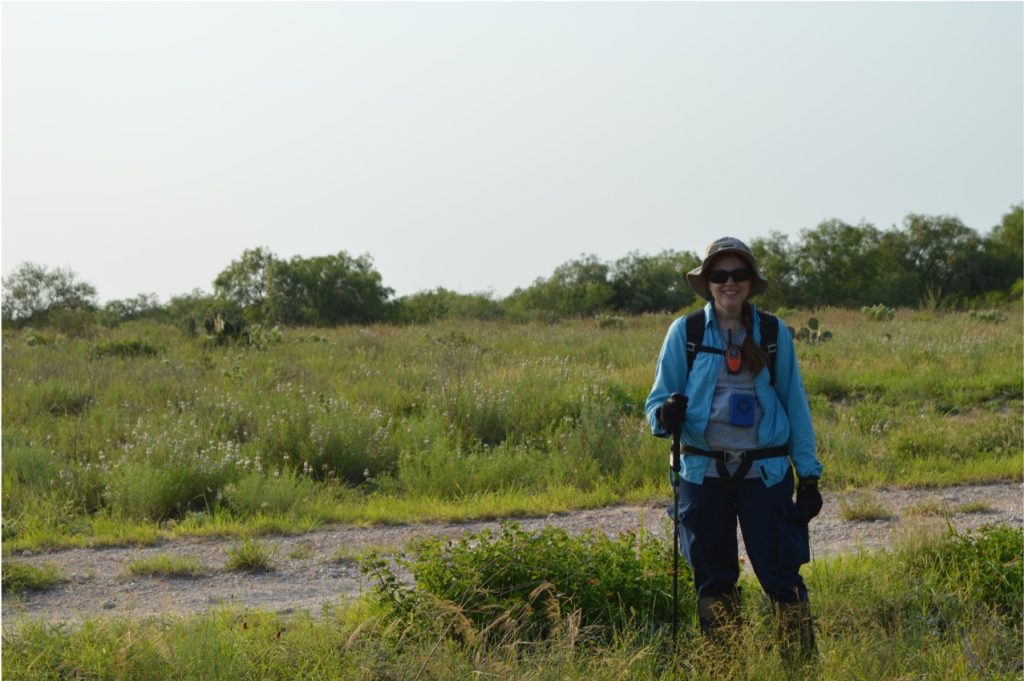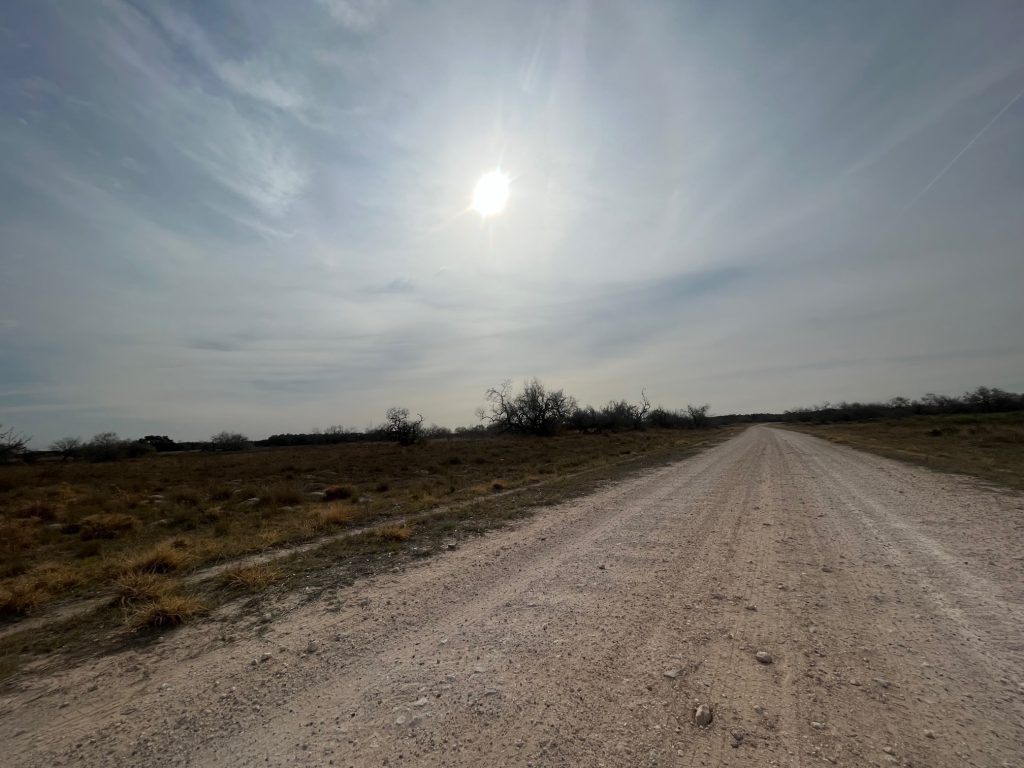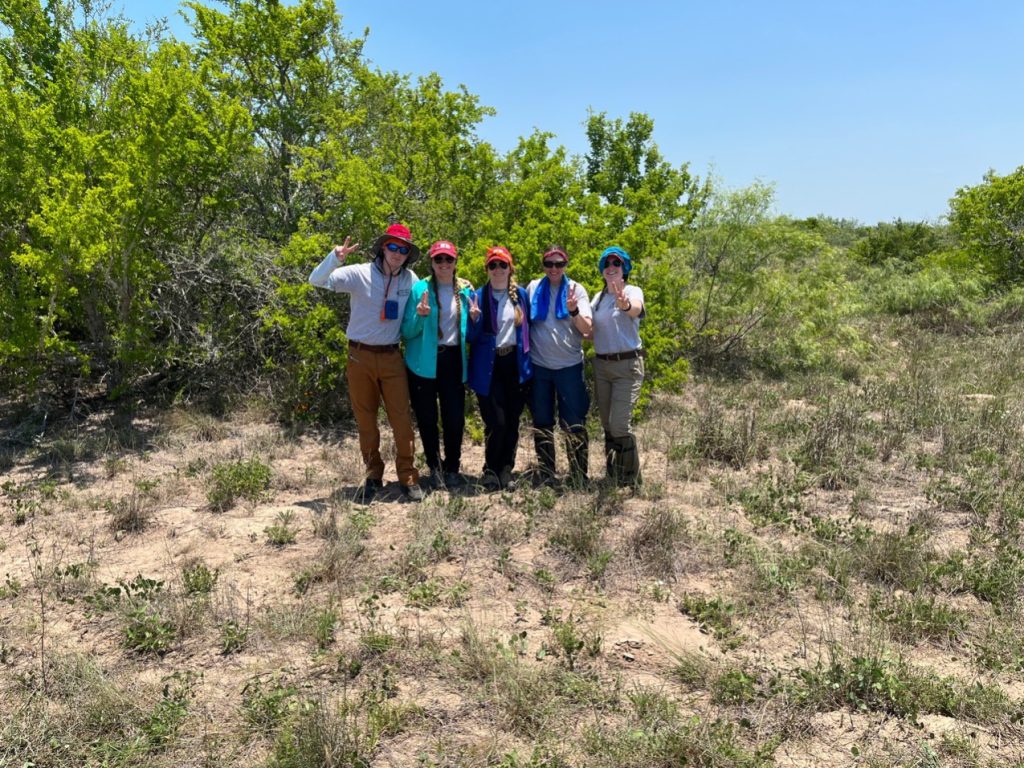
Day two started bright and early with breakfast at our hotel. We then accompanied Deputy Don White to the southern part of the county to conduct a search. Dr. Latham skillfully maneuvered our rental minivan Sandy off-road. There were times when we weren’t completely sure Sandy would make it, but she did! Don was provided the name and age of a missing person and the coordinates where they were last seen, so we parked as close as we could and walked to that location. Many migrants pass through the ranches following the pipelines that run north. These areas are easy to follow in one direction and are typically cleared of brush for safety and access for employees.
We performed line searches at the location of coordinates and searched the surrounding area since there are many reasons why individuals would not be found at the exact coordinate location. We ended up walking several miles searching. We found some evidence of migrant activity, such as a backpack and a couple of water bottles. However, these items did not seem like they had been left there recently. Items such as these can be important because they could indicate the presence of someone who may have passed through recently or could be in distress nearby.
We saw some snakes (to Olivia’s dismay), lizards, and plenty of bugs. It was hotter today than yesterday, with a temperature feel of 102 degrees. Although we had yesterday to adjust a bit, it was still quite draining. We are getting into a good groove as a team, even though it’s been such a short time. As a team, we set goals yesterday for things to improve upon for today and we did really well! We took lots of breaks and made sure we were all drinking a lot of water and staying safe.
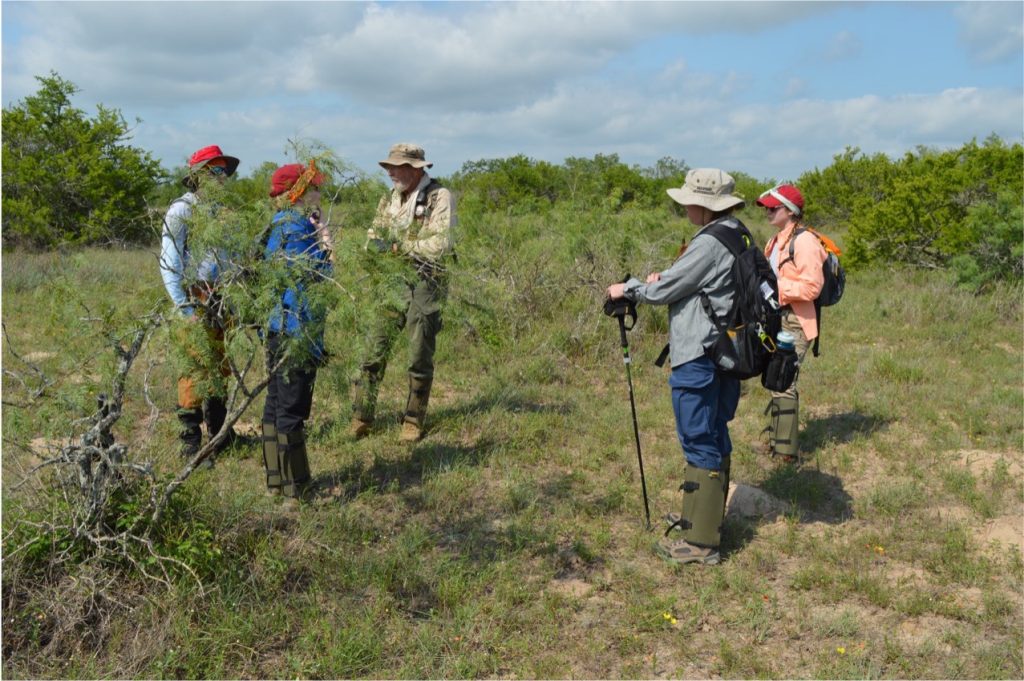
Austin, Olivia, Don, Dr. Latham, and Izzy on one of our breaks
Today was enlightening in many ways. There were a few times when we easily got off track from our decided course or got caught up in groupings of mesquite trees, oak trees and scrubbrush. It is an extremely difficult environment to move through and be in for long periods of time. I cannot even fathom traveling for so long, through this terrain, with limited supplies. Throughout the day there were many circumstances where situational awareness was necessary. This pertains to things like snakes and lizards, trucks, Don and his ability to blend into the environment, and the environment itself.
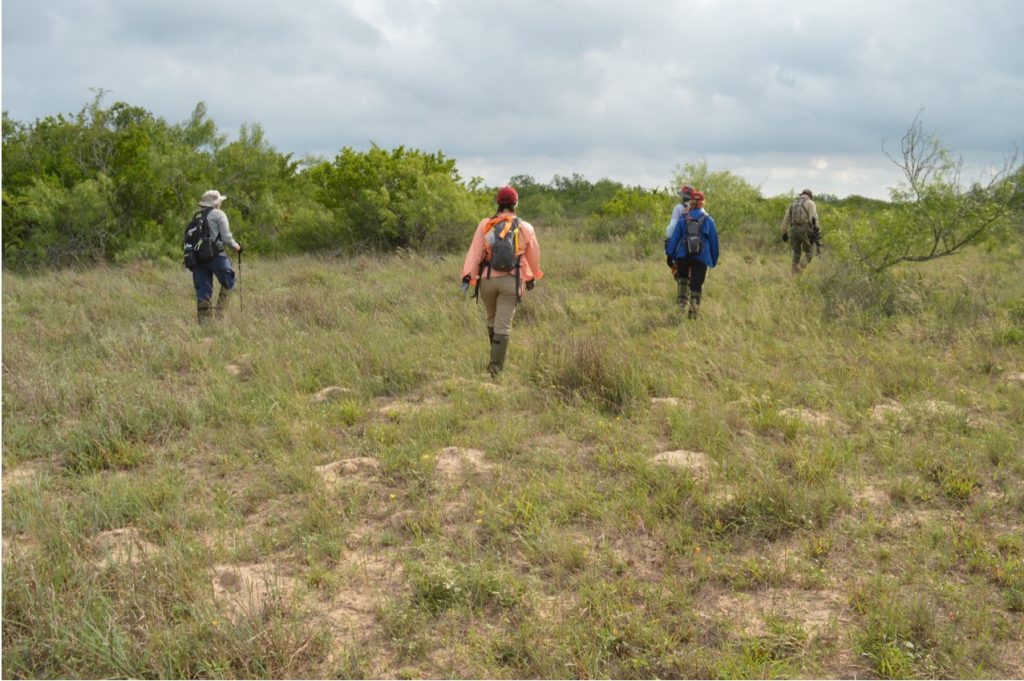
After our search, we went back to the hotel to eat and clean up. Some of us went to the pool to cool off. Afterward, we had our debriefing meeting and headed out to H-E-B for some more supplies. For dinner, we had Laredo Tacos, and it was delicious. Then we relaxed and rehydrated in our room. Olivia made friends with Dusty the stray cat outside the hotel while we did some laundry.
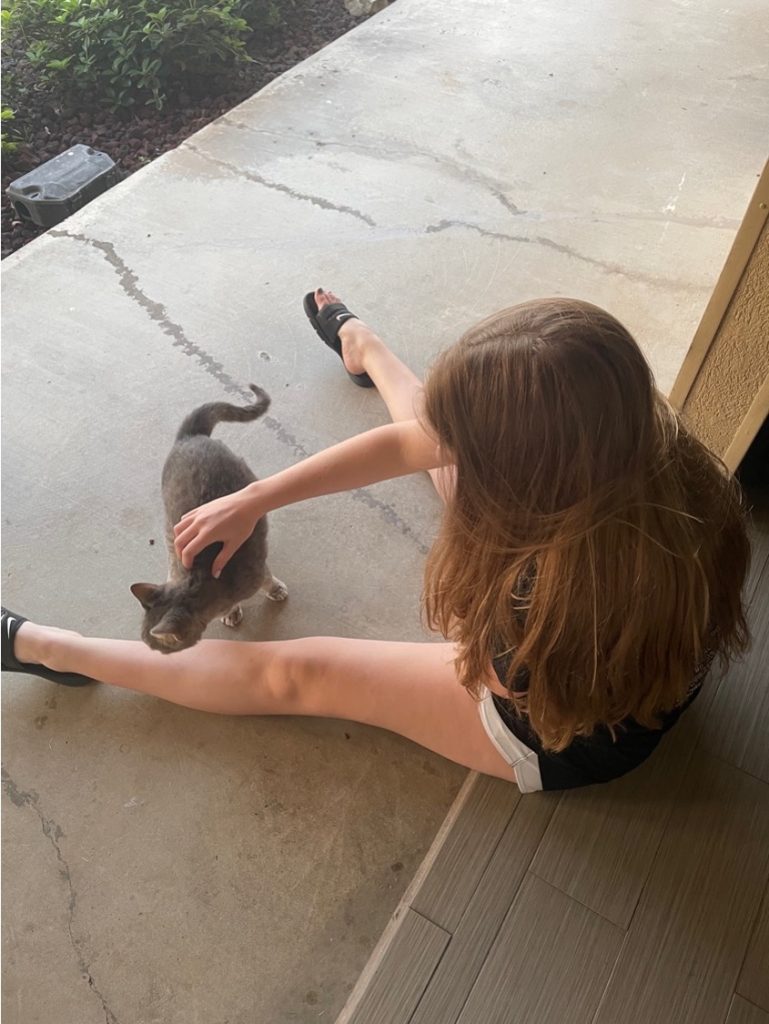
Olivia and Dusty
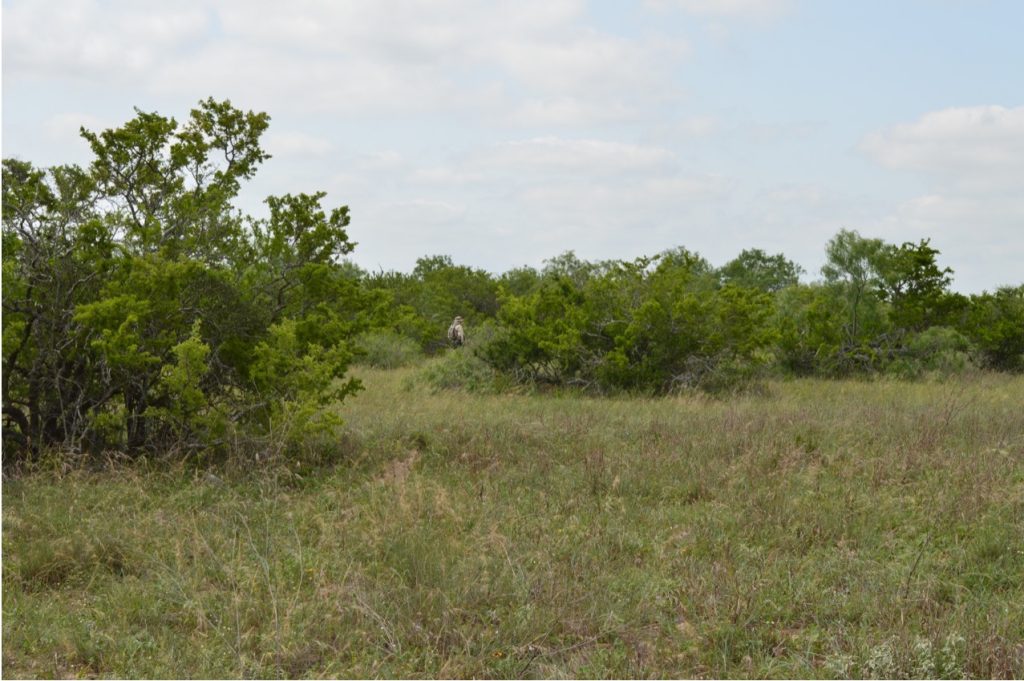
Where’s Don?
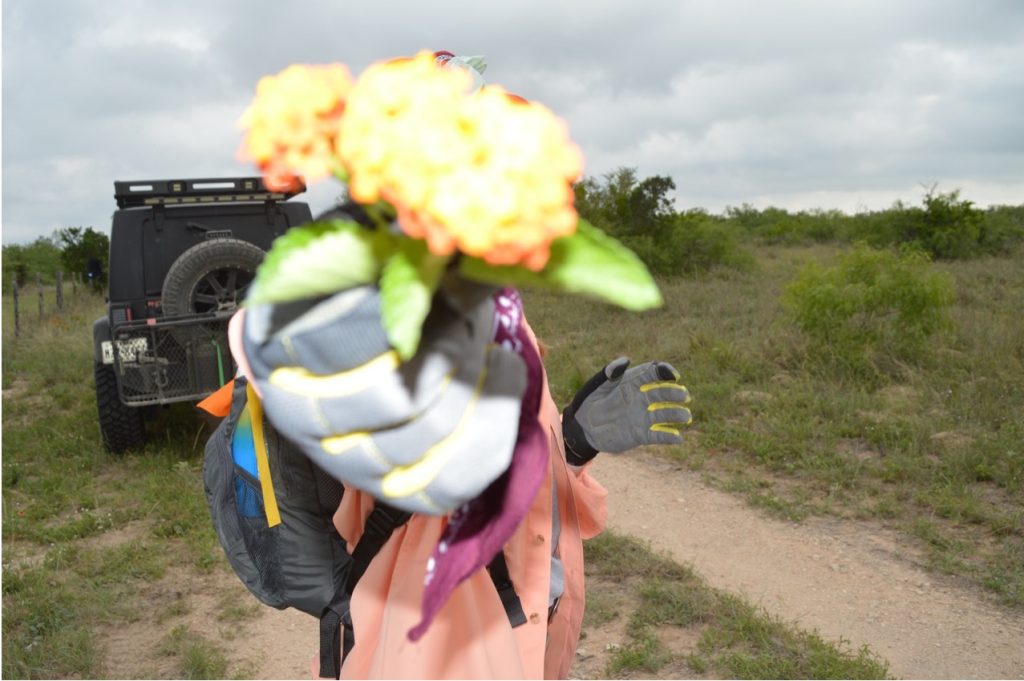
Izzy showing me her flower
